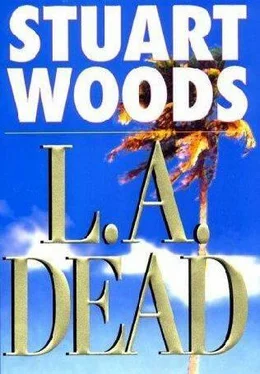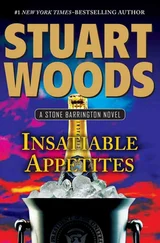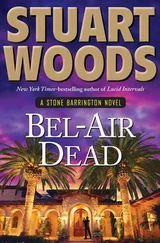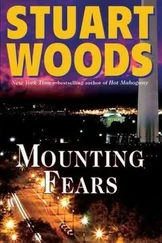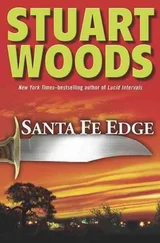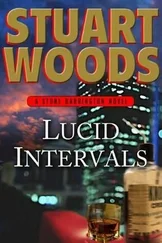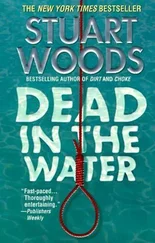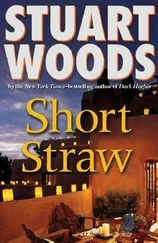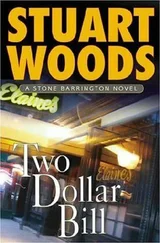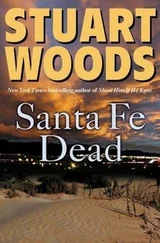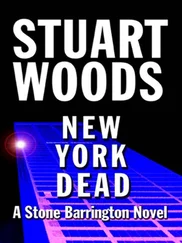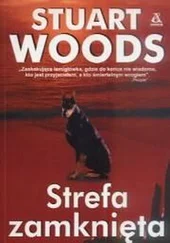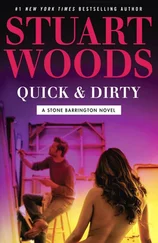The car was something special-a Mercedes E55, which was an E-Class sedan with a souped-up big V8, a special suspension, and the acceleration of an aircraft carrier catapult launcher. Something else for which he was grateful, at the moment: The car had been manufactured with a level of armor that would repel small-arms fire. He had been car shopping when it was delivered to the showroom and had bought it in five minutes, on a whim, at another time in his life when he feared that somebody might be shooting at him.
Rush hour was over, and he made it to the Atlantic Aviation terminal in twenty-five minutes, without getting arrested, all the while dictating a stream of instructions to Joan about what had to be done in the way of repairing the house.
At the chain-link gate to the ramp, he buzzed the intercom and gave the tail number of the Centurion jet. The gate slid open and he drove onto the ramp and to the big Gulfstream Four. He parked at the bottom of the airstair door, gave the bags to the second officer, who was waiting for them, and gave Joan a peck on the cheek. "Thanks for not asking any questions," he said. "One of these days, I'll explain."
Joan leaned forward and whispered, "She's just as beautiful as her pictures." Then she took the keys, got into the car, and headed for the gate.
Stone led Arrington up the stairs and into the airplane. Lou Regenstein was sitting on a couch, reading The New York Times. He looked up as Arrington took off her glasses and scarf. "Holy shit," he said. "What are you…"
Stone held up a hand. "Don't ask. You have not seen what you're seeing."
"Well," Lou said, standing up and hugging Arrington. "You're the nicest invisible lady I've ever seen."
The airplane began to move, and Stone began to breathe again.
With the time change in their favor, it was late afternoon when the G-IV touched down at Santa Monica airport. There was a short taxi to Supermarine, where Lou Regensteins stretch Mercedes limousine was waiting at the bottom of the airstair when the engines stopped. It took a minute to load their luggage, then they were headed toward the freeway.
"May I use your phone, Lou?" Arrington asked. "I want to call home."
"Of course."
She dialed the number. "Hello, Manolo, I'm…" She stopped and held her hand over the phone. "Something's wrong," she said. "Manolo just called me, 'sir.'"
Stone took the phone. "Manolo, it's Mr. Barrington; is there someone there?"
"Yes, sir," Manolo said smoothly. "I'm afraid she's resting at the moment. Can I have her call you back? There are some gendemen waiting to see her now."
"Gentlemen? The police?"
"Yes, sir," Manolo said, sounding relieved that Stone had caught on.
"Just arrived?"
"Yes, sir."
"Do this: Go and knock on Mrs. Calder's bedroom door and pretend to speak to her, then put the policemen in Mr. Calder's study, and tell them she's getting dressed, and she'll be a few minutes. Give them some coffee to keep them occupied."
"Yes, Mr. Regenstein, I'll tell her you called," Manolo said, then hung up.
Stone put the phone back in its cradle.
"Trouble?" Lou asked.
Stone nodded. "Tell your driver to get moving; the cops are at the house."
Lou picked up the phone and pressed the intercom button. "Get us to the Calder place pronto," he said.
Stone took the phone and told the driver how to find the utility gate.
Arrington looked out the window. She seemed finally to have grasped what a difficult position she had put herself in.
Ten hair-raising minutes later, the limousine pulled into the rear drive and stopped at the gate.
"We'll walk from here, Lou," Stone said. "Please ask your driver to leave our bags at Vance's bungalow." He shook hands with Lou, grabbed Arrington's hand and practically dragged her from the car.
"I don't have the remote control for the gate with me," he said. "Is there some other way to open it?"
"Not that I know of," Arrington said, jogging to keep up with him.
"We'll have to go over the fence, then." He husded her into the woods beside the gate and made a stirrup with his hands, then practically threw her over the fence. She landed in a pile of leaves, and a moment later, he joined her. She was laughing.
"I'm sorry, this is so ridiculous," she said.
"We'll laugh about it later," Stone said, taking her hand and starting to run. They made it to the rear of the house, and Stone looked into the living room. "All clear," he said. "Now here's what you do: Go into your room, brush your hair, then go into Vance's study, looking ill. You don't feel well at all. Let me do the talking."
She nodded, then ran into the house and through the living room, toward the master suite.
Stone took a couple of deep breaths, made sure there were no leaves stuck to his clothes, then went into the study. Durkee and Bryant were drinking coffee and looking at Vance's Oscars, while Manolo stood, watching them.
"Afternoon, gentlemen, what can I do for you?"
"We're here to see Mrs. Calder," Durkee said.
Manolo spoke up. "I let Mrs. Calder know the gendemen are here, Mr. Barrington. She'll be out shortly."
"Thank you, Manolo, that's all." He took a chair. "So, to what do we owe the honor of your visit?"
"We just want to see Mrs. Calder," Durkee said.
"She won't be answering any questions," Stone replied. "Surely, you knew that."
"We had a tip that she was in New York," Durkee said. "Show her to me; I'm getting tired of waiting."
Arrington chose that moment to enter the room. "Stone," she said drowsily, "what's this about? I was asleep."
"Sorry to wake you, Mrs. Calder," Durkee said.
"Are you satisfied?" Stone asked.
"I guess so."
Stone turned Arrington around and led her to the bedroom door. "You can go back to bed," he said. "Are you going to want dinner later, or do you want to just sleep?"
"I want to sleep," she said.
"Do you want Dr. Drake?"
"No, I think I'll be all right in the morning." She left the room, and Stone closed the door behind her.
He turned back to the two cops. "A tip? What kind of tip?"
"An anonymous call," Durkee said. "A woman. Said the lady had jumped bail."
Stone shook his head. "As long as you're here, tell me something."
"What's that?"
"Why haven't you interviewed the gardener, Cordova?"
"We have no reason to," Durkee said. "He's not a suspect."
"Do you think he might be connected to the footprint you found outside the back door to the house?"
Durkee and Bryant exchanged a glance. "Nah," Durkee said. "Anybody could have made it."
"A size-twelve Nike, and anybody could have made it?"
"Our investigation has not found the footprint or the gardener to be relevant," Durkee said. "Anyway, Cordova's in Mexico, and wed never find him there."
"Have you made any effort?" Stone demanded.
"I told you, he's not relevant to our investigation. The murderer is in that bedroom."
Bryant spoke up. "Let's get out of here."
"By the way, Mr. Barrington, what are you doing here?" Durkee asked, with a smirk.
"I was working in the guest house," Stone replied. "I'm one of her lawyers."
"Nice work, if you can get it," Bryant said.
Stone opened the door to the study. "Manolo," he called, "show these officers the door, please." He turned to the two detectives. "And don't come back here again, without a warrant. You won't be let in."
The detectives left, and when Stone was sure they were off the property, he went into the bedroom and found Arrington at her dressing table, applying makeup. "Why are you putting on makeup?" he asked. "I hope you don't think you're going anywhere."
"Why don't we go to Spago for dinner?" she asked archly.
Читать дальше
